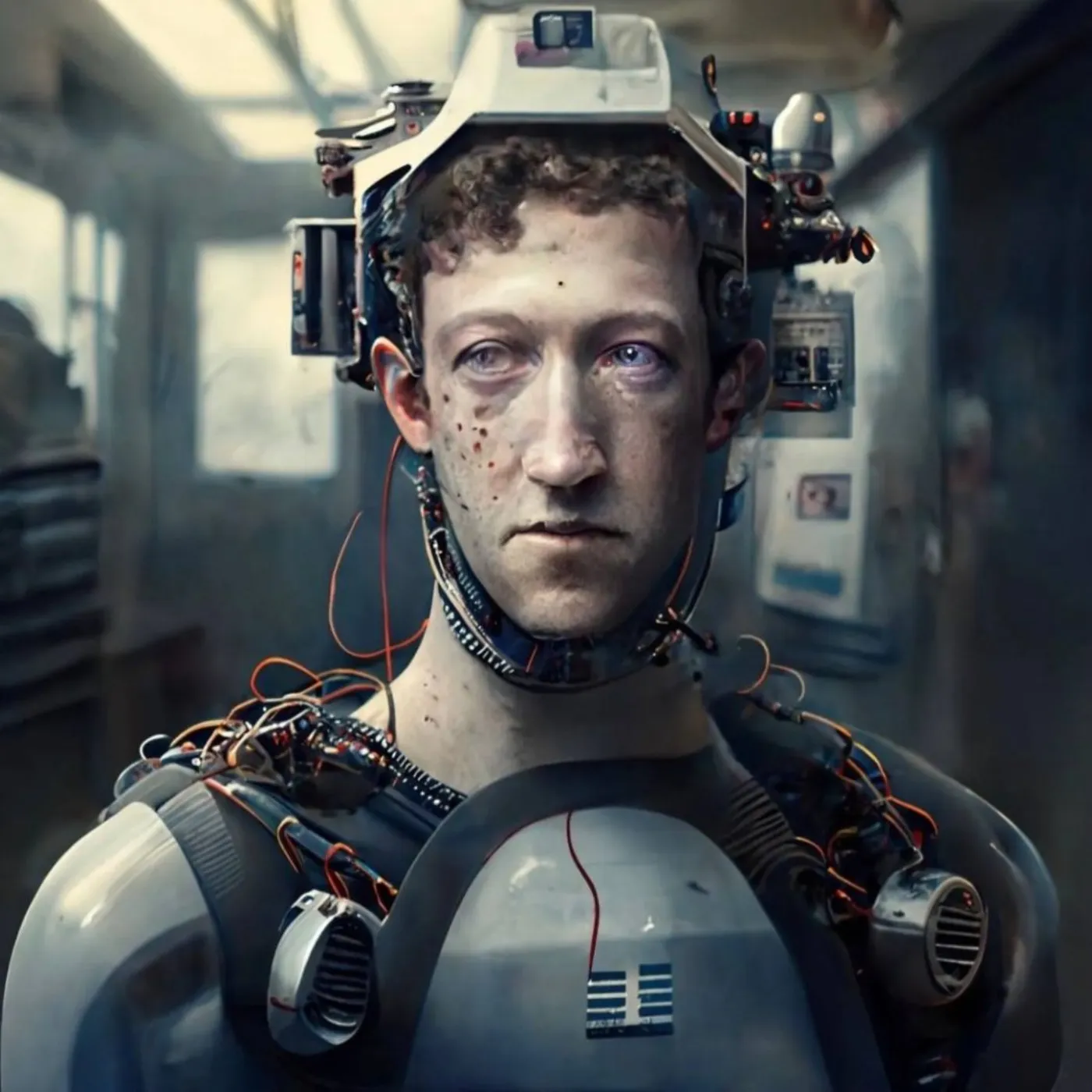

Mark Zuckerberg’s $65 Billion AI Bet: A Genius Move or the Biggest Tech Gamble Ever?
Mark Zuckerberg has set an ambitious course for Meta in 2025, with a massive investment of 60 to 65 billion dollars focused on artificial intelligence development. This investment aims to expand AI infrastructure, including the construction of large-scale data centers and increased adoption of Nvidia AI chips.
The objective is to achieve over 1.3 million graphics processing units by the end of 2025, making it one of the most powerful AI computing networks in the world. This move is a clear indication that Meta is preparing to dominate the artificial intelligence industry, competing directly with companies like Google, OpenAI, and Microsoft.
One of the key elements of this expansion is Meta’s AI assistant, which is expected to reach over a billion users globally. With this significant push, Meta is positioning itself as a leader in the race for advanced AI integration into everyday digital experiences.
Zuckerberg is particularly confident in the potential of Llama 4, the next iteration of Meta’s large-scale AI model. He believes that Llama 4 will surpass previous models in efficiency, adaptability, and real-world problem-solving capabilities.
The tech giant is not just focusing on the number of processing units but also working to refine the AI algorithms that power its platforms. Meta is integrating AI-driven solutions into Facebook, Instagram, and WhatsApp, ensuring that these applications become more intuitive, responsive, and personalized.
According to industry experts, this massive AI investment will significantly enhance natural language processing, computer vision, and real-time data processing, making Meta’s platforms smarter and more interactive.
Louisiana’s 10 Billion Dollar AI Data Hub: The Beating Heart of Meta’s Expansion
To support its AI ambitions, Meta is investing in a 10 billion dollar data center in Richland Parish, Louisiana. This facility is designed to house some of the most advanced AI computing systems, providing the necessary infrastructure for Meta’s Luma models.
This massive data center is expected to become a central hub for AI research and development, allowing Meta to push the boundaries of machine learning and neural network capabilities.

There are several reasons why Meta has chosen Louisiana for this expansion:
- The state offers strategic access to energy-efficient infrastructure, which is crucial for operating large-scale AI data centers.
- The vast available space allows for future expansion, ensuring that the facility can accommodate AI advancements in the coming years.
- Meta is committed to long-term investment in AI-driven industries, positioning itself as a leader in the next generation of computing technology.
The project is set to be completed by 2030, and it will play a crucial role in scaling up Meta’s AI capabilities. Mark Zuckerberg has emphasized that this is not just a standard data center but a key element in the AI revolution that will define the next decade.
The Metaverse Vision: Zuckerberg’s 47 Billion Dollar Gamble Continues
Despite the 47 billion dollar losses that Meta’s Reality Labs has suffered since 2019, Mark Zuckerberg remains fully committed to the metaverse. Many industry analysts questioned whether Meta would abandon its virtual reality and augmented reality projects, but the company is still investing heavily in building the digital future.
The vision for the metaverse is to create an immersive virtual world where people can work, socialize, shop, and experience entertainment. Meta is integrating AI-driven solutions into its Metaverse projects, aiming to enhance real-time interactions and improve user experience.
The company is focusing on three major aspects of Metaverse development:
- AI-powered virtual environments that adapt to user preferences and behaviors.
- Enhanced VR and AR integration to create a seamless blend between the digital and physical worlds.
- Expansion of Meta’s Quest headset technology, making virtual experiences more accessible and interactive.
Many critics have doubted the feasibility of Meta’s Metaverse, pointing to the massive financial losses and slow adoption rates. However, Zuckerberg remains optimistic, stating that the metaverse is the future of digital interaction and that the current financial setbacks are part of the long-term investment strategy.
One of the key developments in Meta’s Metaverse strategy is the integration of artificial intelligence into virtual worlds. By utilizing advanced AI algorithms, Meta aims to create dynamic and interactive environments that respond to user actions in real-time.
Meta’s Future: Will AI and the Metaverse Finally Pay Off?
The big question remains: Will Meta’s AI and Metaverse investments pay off, or is this one of the biggest financial risks in tech history?
On one hand, Meta’s AI expansion puts the company in direct competition with other technology giants that are aggressively investing in artificial intelligence. Companies like Google, Microsoft, and Amazon are also racing to build AI-driven ecosystems, making the battle for dominance even more intense.
On the other hand, the Metaverse project remains a high-risk venture. While some tech leaders believe in the potential of virtual reality, others argue that the slow adoption rates and high development costs make it an uncertain bet.
Zuckerberg’s vision is clear: he believes that AI and the metaverse will redefine digital interaction, creating new ways for people to connect, work, and engage with technology. Meta’s long-term strategy focuses on ensuring that AI-powered platforms become an essential part of everyday life.
The outcome of these billion-dollar investments will determine whether Meta emerges as the undisputed leader in AI and virtual reality, or if these bold moves turn into one of the biggest tech industry failures.
Regardless of the outcome, one thing is certain: Mark Zuckerberg is not afraid to bet big on the future.
Meta’s Long-Term Strategy: The Intersection of AI and the Metaverse
As Meta moves forward with its ambitious AI and Metaverse projects, the company is focusing on creating a seamless integration between artificial intelligence and virtual reality. The long-term goal is to develop a digital ecosystem where AI-driven virtual assistants, personalized content, and real-time adaptive environments will redefine how users interact with technology.
One of the key areas of development is the use of AI to enhance virtual interactions. Through advanced machine learning models, Meta aims to make avatars, digital spaces, and AI-driven NPCs (non-playable characters) more lifelike and intuitive. This technology will not only transform gaming and social interactions but also revolutionize remote work and online collaboration.
Beyond entertainment and communication, Meta is also exploring how AI can be integrated into e-commerce, digital marketing, and content creation within the Metaverse. By leveraging AI algorithms, businesses will be able to provide hyper-personalized experiences, changing the way consumers shop and interact with brands.
Despite facing financial risks and skepticism, Mark Zuckerberg remains committed to shaping the next digital revolution. If successful, Meta’s AI and Metaverse could become the foundation of a new era in technology, transforming industries across the world.


















